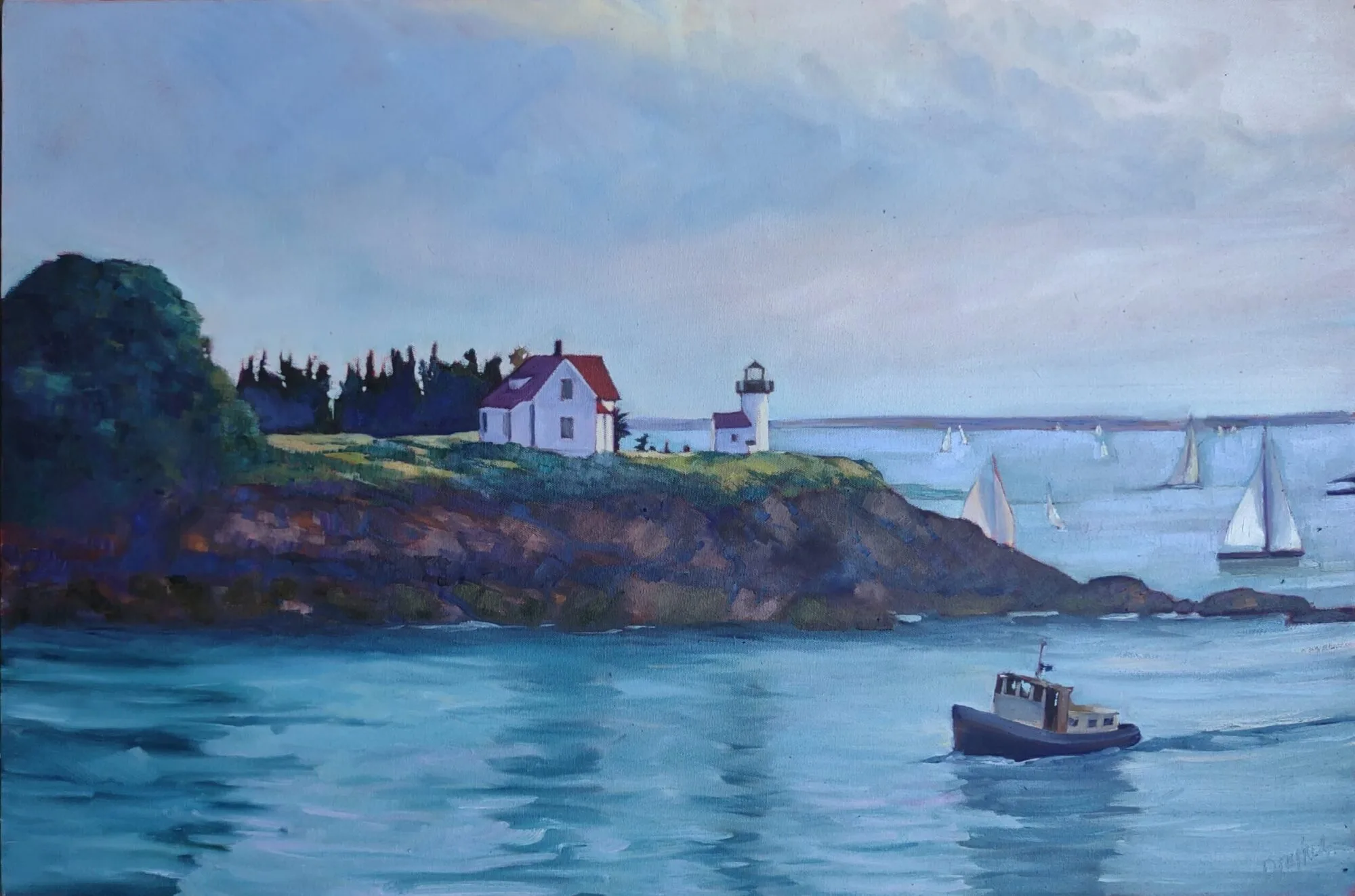Envy, covetousness, and false expectations are all ways to guarantee a rotten time as an artist.
 |
|
Dyce Head in the early morning light, Carol L. Douglas
|
I haven’t been able to paint for weeks. It seems as if my peers have made fantastic strides in that time. I look at their work on Instagram and Facebook and it’s downright depressing to see the clarity, color, and compositions they’ve achieved while I’m lying on the couch with my feet elevated.
I’m competitive; I’ll admit it. It’s not a good trait. I have a dear friend who is capable of shrugging off the worst jurying news. She isn’t focused on the competition, but on her own development as an artist. If I ever grow up, I’d like to be just like her.
As Ecclesiastes reminds us, “all toil and all skill in work come from a man’s envy of his neighbor. This also is vanity and a striving after wind.” Envy leads to anger and covetousness, but it also burns up the envier. Being competitive is a rush when it’s all going our way, but more often, it just makes us miserable.
 |
| Lonely Lighthouse (Parrsboro, NS), Carol L. Douglas |
Another great way to kill your joy in painting is to tailor your work too closely to a niche a gallerist has identified for you. Yes, lighthouses sell on the coast of Maine, and they’re fascinating to paint. Do you want to spend all your days churning out pictures of them?
Fitting work to the marketplace is wise. Fitting it to anyone else’s expectations is very foolish. What will sell is not just a matter of content; it’s a combination of that and your approach to the content.
If you’re a young person, you probably seek advice from your parents. Neither of mine were entrepreneurs. Their advice, while grounded in love, was the product of their own experiences.
 |
|
Cape Spear Road (Newfoundland), Carol L. Douglas. That’s not one, but two, lighthouses.
|
Even though my father taught me to paint, my parents were hardly enthusiastic about an art career for one of their children. I remember my first complete bust of a show. I’d sold nothing and a pastel fell off the wall, damaging the frame. “Well, you gave it a good try,” my mom sighed, thinking I’d get over the idea of a career in the arts.
This isn’t because families are not supportive; it’s because they believe the lie that it is impossible to prosper in the arts. To a degree, they’re right; it’s a lot easier to make a living as a computer programmer. But the arts are not a one-way ticket to poverty, either.
 |
| Owls Head Light, Carol L. Douglas |
Still, once you decide to follow a career in the arts, you’ve made the decision that money isn’t your paramount value. Why, then, would you let money dictate every small decision you make thereafter? The marketplace is too intelligent to reward this, anyway. Trying to produce work that looks just like someone else’s is a guaranteed path to insignificance.





